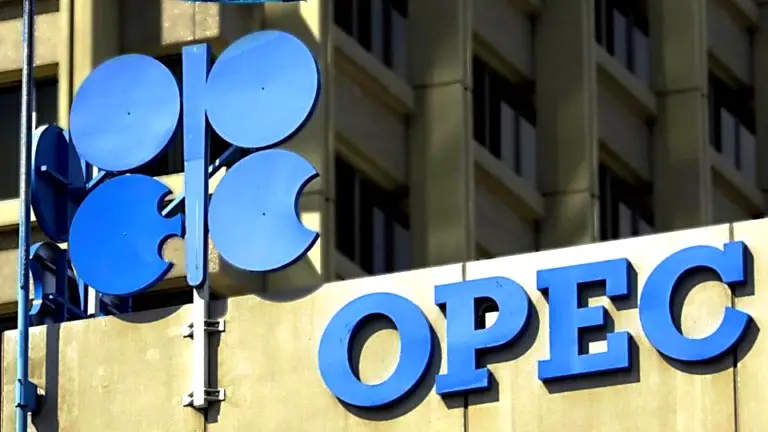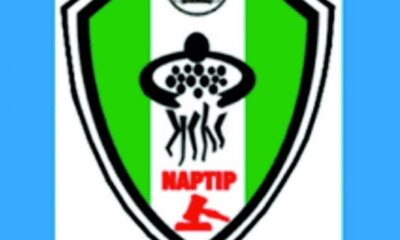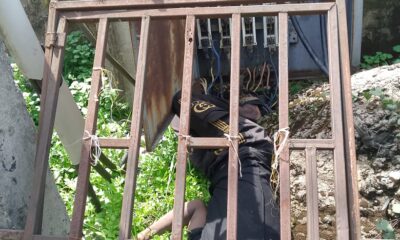Business
Rivers, Edo, Akwa Ibom, 29 Others Attract Zero Foreign Investments In Q1 – Report
Published
2 years agoon
By
Editor
Thirty-two states in Nigeria, including Rivers and Kaduna, did not attract any foreign investments in the first quarter of 2022, The PUNCH has learnt.
A report by the National Bureau of Statistics shows that only Lagos, Oyo, Katsina, Anambra states, and the Federal Capital Territory attracted investment during the period.
According to the NBS’ Nigerian Capital Importation (Q1 2022), the total value of capital imported into Nigeria in the first quarter of 2022 stood at $1.6bn from $2.2bn in the preceding quarter, showing a decrease of 28.09 per cent.
When compared to the corresponding quarter of 2021, capital importation decreased by 17.46 per cent from $1.9bn.
The largest amount of capital importation by type was received through portfolio investment, which accounted for 60.87 per cent ($957.58m). This was followed by Other Investment with 29.28 per cent ($460.59m) while Foreign Direct Investment accounted for 9.85 per cent ($154.97m) of total capital imported in Q1 2022.
By destination of investment, Lagos State remained the top destination in Q1 with $1.1bn accounting for 71.16 per cent of total capital investment into Nigeria. This was followed by investment into Abuja (FCT), valued at $446.8m(28.40 per cent).
Anambra Oyo and Katsina states followed, with each raking in $4.1m, $2m and $700,000, respectively.
On the other hand, Abia, Adamawa, Akwa Ibom, Bauchi, Bayelsa, Benue, Borno, Cross River, Delta, Ebonyi, Edo, Ekiti, Enugu, Gombe, Imo, Jigawa, Kaduna and Kebbi states failed to attract any foreign investments during the period under review.
Others are Nasarawa, Kogi, Kwara, Kano, Niger, Ogun, Ondo, Osun, Plateau, Rivers, Sokoto, Taraba, Yobe and Zamfara states.
Categorisation of total capital investment by bank shows that Standard Chartered Bank Nigeria ranked highest in Q1 with $543.20m (34.53 per cent). This was followed by Citi Bank Nigeria Limited with $439.03m(27.91 per cent) and Stanbic IBTC Bank Plc with $251.52 (15.99 per cent).
Speaking in an exclusive interview with The PUNCH, an ECOWAS Common Investment Market consultant, Professor Jonathan Aremu, said, “It’s simple. It’s because they don’t have the attracting factors. The factors that attract foreign investment are not available in those 31 states. One thing about investment is that it is crisis shy. Investment doesn’t go to places where there are crisis. Why? Because investors want stability and predictability of their investments, particularly, having returns on their investments.
“When an economy is witnessing what we are witnessing currently, despite the investment potentials of that kind of economy, investors will wait and see whether the factors that can guarantee predictable and sustainable investments will finally be available.”
He added that the twin factors of a good investment climate as well as a good perception of that climate would have to be present for investors to develop the confidence to bring investments into the country.
Similarly, the Deputy-President of the Lagos Chamber of Commerce and Industry, Gabriel Idahosa, cited factors such as insecurity and the economic crisis experienced in Nigeria in recent years as major reasons why investors may not consider Nigeria the best possible destination.
READ ALSO: Heavy Criticism For FG As 24 States Lose Foreign Investments
Idahosa said, “We know what to do. We simply have refused to do it. We know that we should have put in place a state police system around this country maybe five or 10 years back, before Boko Haram became a monster. If we had state police in Borno State when Boko Haram was a very small, tiny group of ruffians creating local problems, perhaps we never would have heard of Boko Haram.
“Generally, the police system should be taken out of the Exclusive list; so we can have state police, and municipal police, just like we have in other federations. The New York Police Department has a budget that is probably higher than the Nigerian Police. Same thing with the Los Angeles Police Department. We know what to do, it’s just the political confidence to do it.”
You may like


Edo: NAPTIP Arrests Fake Rev. Sister For Allegedly Trafficking 38 Children


Edo Commissioner Stripped Of Chieftaincy Title For Disrespecting Throne


Edo Court Sentences Three To Death By Hanging For Kidnapping, Robbery, Murder


Edo CJ Frees 4 Awaiting Trial Inmates In Correctional Centres In Benin


JUST IN: Kaduna Assembly Sets Up Committee To Probe El-Rufai


Obaseki Inaugurates Solar Power Project At Benin Military Hospital, To Extend Facility To 18 LGAs
Business
CBN Gives New Directive On Lending In Real Estate
Published
1 day agoon
April 17, 2024By
Editor
The Central Bank of Nigeria, CBN, has released a new regulatory directive to enhance lending to the real sector of the Nigerian economy.
The directive, issued on April 17, 2024, with reference number BSD/DIR/PUB/LAB/017/005 and signed by the Acting Director of Banking Supervision, Adetona Adedeji, signifies a notable shift in the bank’s policy towards a more contractionary approach.
In line with the new measures, the CBN has reduced the loan-to-deposit ratio by 15 percentage points, down to 50 per cent.
This move aligns with the CBN’s current monetary tightening policies and reflects the increase in the Cash Reserve ratio rate for banks.
READ ALSO: JUST IN: CBN Gov Sacks Eight Directors, 32 Others
The LDR is a metric used to evaluate a bank’s liquidity by comparing its total loans to its total deposits over the same period, expressed as a percentage.
An excessively high ratio may indicate insufficient liquidity to meet unexpected fund requirements.
All Deposit Money Banks are now mandated to adhere to this revised LDR.
The CBN has stated that average daily figures will be utilised to gauge compliance with this directive.
Furthermore, while DMBs are encouraged to maintain robust risk management practices in their lending activities, the CBN has committed to continuous monitoring of adherence and will adjust the LDR as necessary based on market developments.
READ ALSO: JUST IN: CBN Increases Interest Rate To 24.75%
Adedeji has called on all banks to acknowledge these modifications and adjust their operations accordingly. He emphasised that this regulatory adjustment is anticipated to significantly influence the banking sector and the wider Nigerian economy.
The circular read in part, “Following a shift in the Bank’s policy stance towards a more contractionary approach, it is crucial to revise the loan-to-deposit ratio policy to conform with the CBN’s ongoing monetary tightening.
“Consequently, the CBN has decided to decrease the LDR by 15 percentage points to 50 per cent, proportionate to the rise in the CRR rate for banks.
“All DMBs must maintain this level, and it is advised that average daily figures will still be applied for compliance assessment.
“While DMBs are urged to sustain strong risk management practices concerning their lending operations, the CBN will persist in monitoring compliance, reviewing market developments, and making necessary adjustments to the LDR. Please be guided accordingly.”

The Dangote Petroleum Refinery has announced a reduction in the price of Automotive Gas Oil, popularly called diesel, from N1,200/litre to N1,000/litre.
It announced this in a statement issued on Tuesday by its spokesperson, Nduka Chiejina.
The statement read in part, “In an unprecedented move, Dangote Petroleum Refinery has announced a further reduction of the price of diesel from N1,200 to N1,000/litre.
READ ALSO: NNPP Faction Suspends Kano Governor For Six Months
“While rolling out the products, the refinery supplied at a substantially reduced price of N1,200/litre three weeks ago, representing over 30 per cent reduction from the previous market price of about N1,600/litre.
“This significant reduction in the price of diesel at Dangote Petroleum Refinery is expected to positively affect all the spheres of the economy and ultimately reduce the high inflation rate in the country.”
According to The PUNCH report, last week, oil marketers called on the refinery to reduce its diesel price, as they urged managers of the facility to sell at N850/litre.
Details later…
Business
Nigeria’s Oil Production Drops Again, Now 1.23mbpd – OPEC
Published
7 days agoon
April 12, 2024By
Editor
Nigeria’s crude oil production witnessed the second consecutive monthly decline since the beginning of this year, as it dropped to 1.231 million barrels per day in March, the Organisation of Petroleum Exporting Countries stated on Thursday.
OPEC disclosed this in its latest Monthly Oil Market Report for April 2024, stating that crude oil production details which it got through direct communication from Nigeria showed that the country pumped less oil in March when compared to what was produced in February.
Data from the report indicated that Nigeria produced 1.322 million barrels per day of crude in February this year, but this dropped to 1.231mbpd in March, representing a plunge of 91mbpd.
The report further stated that the country had produced 1.427mbpd of crude in January, but this was not sustained in February as it dropped in that month, while the southward oil production continued in March.
OPEC data, however, showed that the country’s average crude oil production in the first quarter of 2024 was 1.327mbpd, higher than the 1.313mbpd average oil production in the fourth quarter of 2023.
Nigeria’s first quarter oil output in 2024 was also higher than the 1.201mbpd average production in the third quarter of last year.
READ ALSO: Oil Production Rises 26.57m Bpd In February — OPEC
Oil theft and pipeline vandalism have dealt severe blows on Nigeria’s oil production, limiting the country’s output and making it fall below the volume approved for Nigeria by OPEC.
The PUNCH reported on Wednesday that the Nigerian National Petroleum Company Limited recorded 155 oil theft incidents in one week.
The report that stated the company revealed that during the review period, 53 illegal pipeline connections and 36 illegal refineries were uncovered in the Niger Delta.
“Between March 30 and April 5, 2024, a total of 155 incidents were recorded across several locations in the Niger Delta region from various incident sources,” the firm stated.
In a summary of the incidents, NNPCL stated that it recorded 53 illegal connections, discovered 36 illegal refineries and 32 wooden fibre boats, identified 14 pipeline vandalism cases, eight vessel infractions and four oil spills, as well as made seven vehicle and one vessel arrests.
Some of the incident sources include the Nigeria Agip Oil Company, Tantita Security Services Ltd, NNPCL Command and Control Centre, Shell Petroleum Development Company, NNPCL 18 Operating Ltd, among others.
READ ALSO: Oil Drops Further After OPEC Delay With Asian Stocks Mixed
Providing additional details, the company said, “In the past week, 32 wooden boats conveying stolen crude and illegally refined products were seized and confiscated in Rivers and Delta states.
“On land, seven vehicles loaded with stolen crude were arrested in Imo, Delta and Rivers states. 53 illegal connections were uncovered between March 30 and April 5, 2024 in Bayelsa, Rivers and Delta states.
“14 cases of vandalism were also recorded in Rivers, Bayelsa and Delta states, while illegal storage sites where stolen crude and illegally refined products are kept were uncovered in Akwa Ibom, Bayelsa, Rivers and Delta states.”
The national oil company also stated there were clusters of illegal refineries in Abia State, as activities of oil thieves had devastated the effected environments in the state.
It said 36 clusters of the illegal refineries were discovered in the past week across several locations in Rivers and Abia states.
“Four cases of oil spills due to activities of vandals were recorded in the past week,” NNPCL stated, adding that in Rivers State, oil leaks from a wellhead is destroying aquatic lives.
NNPCL stated that 38 suspects were arrested during the week under review, stressing that the national oil company would not back down on the war against crude oil theft until the menace is eradicated.
READ ALSO: OPEC Cuts Nigeria’s Oil Output By 20.7% To 1.38 mb/d
Nigeria has been losing trillions of naira to crude oil theft, a development that has made some international oil companies to divest from onshore to deep offshore oil fields, while others have exited the country.
In November 2023, for instance, The PUNCH reported that the Federal Government revealed that more than N4.3tn worth of crude oil was stolen in 7,143 pipeline vandalism cases within a period of five years.
The report stated that the government disclosed this at the Nigeria International Pipeline Technology and Security Conference in Abuja, with the theme, ‘Bolstering Regulations, Technology and Security for Growth.’ The conference was organised by the Pipeline Professionals Association of Nigeria.
In a presentation at the conference by the Nigeria Extractive Industries Transparency Initiative, a Federal Government agency, the organisation revealed that oil theft and losses in Nigeria had become a national emergency.
The Executive Secretary, NEITI, Ogbonnaya Orji, said oil theft was an emergency that posed serious threat to oil exploration and exploitation with huge negative consequences on economic growth, business prospects and profit earnings by oil companies.
Providing data from the agency’s reports to back his claims, he said, “NEITI disclosed that in the last five years, 2017 to 2021, Nigeria recorded 7,143 cases of pipeline breakages and deliberate vandalism resulting in crude theft and product losses of 208.639 million barrels valued at $12.74m or N4.325tn.
“NEITI reports also disclosed that during the same period Nigeria spent N471.493bn to either repair or maintain pipelines.”
PUNCH

Police Rescue Three Toddlers Locked Up In Lagos Home

Edo: NAPTIP Arrests Fake Rev. Sister For Allegedly Trafficking 38 Children

Ex-Anambra Gov, Obiano Loses Bid To Stop Trial In N40bn Fraud Charges

Woman S*xually Abuses Child, Films It In Viral Video

Jnr Pope: ‘That Guy No Suppose Knack Bell’ – Boat Captain Narrates His Own Side Of Story [VIDEO]

Junior Pope: ‘Our Boat Captain Hit Fisherman’s Canoe’ – Survived Actor Narrates How It Happened [VIDEO]
Trending

 Metro3 days ago
Metro3 days agoJunior Pope: Photos From Funeral Of Makeup Artiste, Abigail Frederick

 News4 days ago
News4 days agoVideo: Moment Pastor Enenche Sent Lady Away For Giving False Testimony On The Altar

 Metro2 days ago
Metro2 days agoTwo Soldiers Arrested For Allegedly Stealing Armoured Cables At Dangote Refinery In Lagos

 News3 days ago
News3 days agoBREAKING: APC Suspends National Chairman Ganduje

 Headline3 days ago
Headline3 days agoUS-based Nigerian Bodybuilder Dies 18 Days After Being Shot By Wife

 News2 days ago
News2 days agoBREAKING: FG Begins Disbursement Of N200bn Palliative Loans

 Headline1 day ago
Headline1 day agoB-I-Z-A-R-E: Woman Wheels Dead Uncle’s Corpse Into Bank To “Sign Off” Loan In Her Name [VIDEO]

 News3 days ago
News3 days agoPastor Enenche Under Fire For Accusing Church Member Of Fake Testimony

 Metro2 days ago
Metro2 days agoTransformer Vandal Met Waterloo, Electrocuted In Benin

 Metro4 days ago
Metro4 days ago‘Side Chick’, Family Members Allegedly Attack Lover’s Wife




























